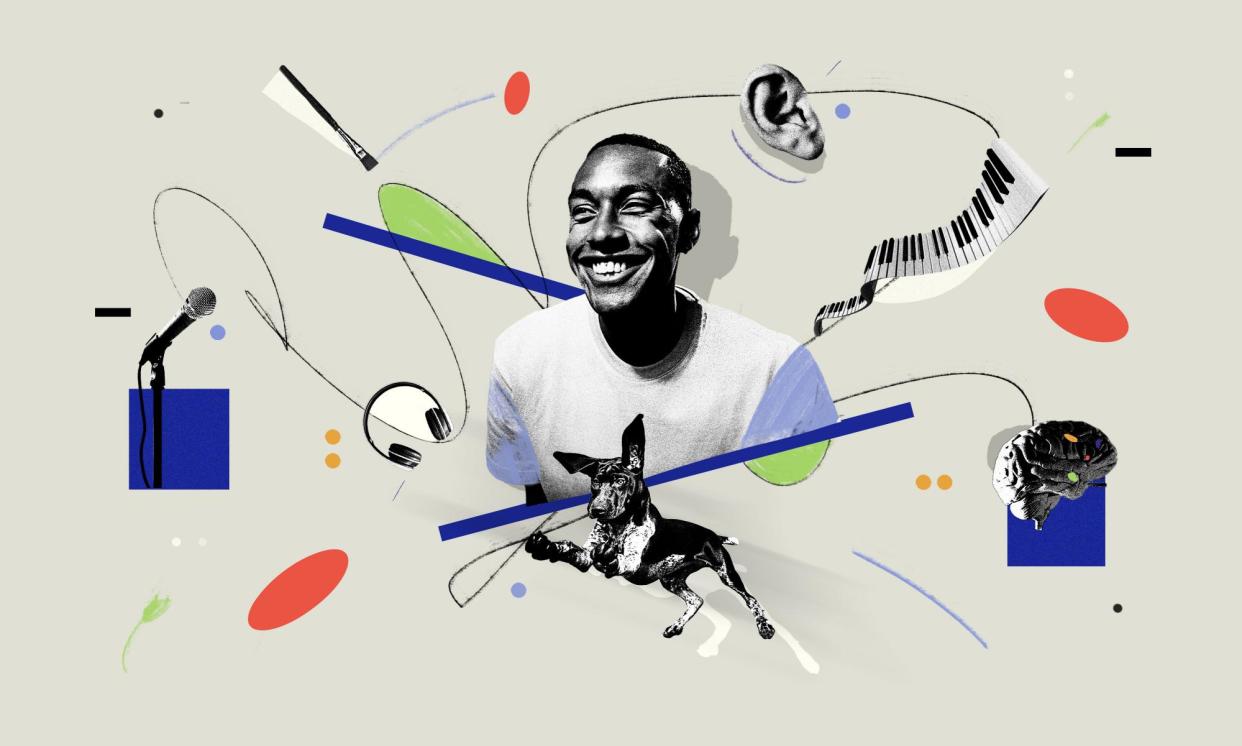Hannah Fry on creativity and the psychological state shared by every genius from Jackson Pollock to Eminem

Eminem may not often be considered one of the greatest philosophers of our time, but when he rapped about being lost in the music and never letting that moment go, he honed in on the importance of removing barriers during the creative process – and in doing so he struck on some neurological truth.
It’s a sentiment that other creatives over the years have subscribed to, from Taoists in ancient China trying to find wu-wei (effortless action) to Jackson Pollock, who described the process of painting as almost being unconscious: “When I am in my painting, I’m not aware of what I’m doing. It is only after a sort of ‘get acquainted’ period that I see what I have been about.”
It’s a concept that’s also been dubbed “flow state”, or the idea of transcending exertion in a timeless moment of free flowing creativity, that was coined in the 70s by Mihaly Csikszentmihalyi, a Hungarian psychologist who was fascinated by the question of what it is that makes us truly happy.
He was particularly interested in musicians and artists who seemed to find great fulfilment from their work, regardless of whether it brought them fame and fortune. What he noticed in his studies was that many of them displayed the joy of a specific experience of their craft, a state of ecstasy where time disappeared and the work flowed effortlessly out of them.
Csikszentmihalyi’s work expanded to document the same experience across a range of individuals. This state of mind of “being in the zone” isn’t just limited to artists. Athletes and accountants, monks and mathematicians – wherever people are fully engaged with a challenge that is perfectly balanced with their skill, there is the potential for their world to disappear around them and their actions to flow as if without thought.
And, in a sense, that is exactly what is happening. As brain scanning has become more advanced, science has turned to fMRIs and EEGs to try and understand what is physically behind such an elusive psychological state.
Supercharge your creativity with Galaxy AI
Experimenting with images is a good place to begin creative endeavours, and with Photo Assist on the new Galaxy Z Flip6, budding artists are encouraged to snap freely; edit smartly. Using photos and AI capability, the Sketch to Image feature allows you to transform a sketch into a photorealistic object that matches the mood of the original drawing. Meanwhile, a selfie can be taken into whole new artistic realms with Portrait Studio, which turns portrait pictures and more into graphic novel-worthy cartoon characters.
Earlier this year, one study found that as improvising jazz musicians entered a flow state, the area of the brain that was responsible for self-monitoring and conscious reasoning had a decrease in activity while the area that dealt with self-expression lit up.
In other words, the musicians in this study literally turned down the part of their brains that was monitoring their surroundings and weighing up potential risks or mistakes. And, by disassociating themselves from those inhibitions, they were able to utilise their skill in a freer flowing way.
But this state transcends genre as well, as a 2012 study of freestyling rappers found similar results: when they transitioned from something memorised to something improvised, the area of their brains responsible for executive functioning and regulation showed a reduction in activity.
So how can this information be used in our own creative endeavours? All this seems to point to the fact that one of the most important aspects of creativity is an ability to let go of our inhibitions and fear of making mistakes. When we worry a task is too hard for us, our neural resources are focused on simply executing the task correctly while also generating anxiety and monitoring how our abilities are being perceived by those around us. But when we allow ourselves to actively let go of the thoughts that keep us in control, the brain’s specialised networks for self expression are able to take over and fly.
The potential is there in all of us as well. Contrary to what some may think, you don’t need to be a creative genius to reach this freeing level of enlightenment – something as simple as letting your mind wander while you shower can set off sparks of inspiration. When we give ourselves permission to be playful and let go of inhibition, beautiful things happen.


